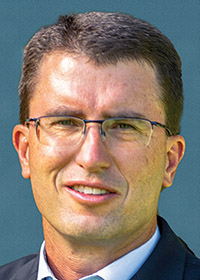Our noise problem
by July 26, 2024 8:44 am 92 views

“Wherever there is judgment, there is noise and more than you think.” This quote comes from the book, “Noise: A Flaw in Human Judgment” by Daniel Kahneman, Olivier Sibony and Cass Sunstein. The authors dig deeply into the ways in which we, as humans, exercise judgment in any number of ways – from our daily routine interactions to our professional lives.
They explore fascinating accounts within the insurance industry regarding how adjusters do their jobs as well as concerning variability in sentencing guidelines within our federal judicial system. They also distinguish noise from bias and how each can affect our judgment, the positions we take and ultimately our decisions and actions. And here’s the thing: We all think we’re way better at managing the noise than we really are!
To illustrate, here’s one example the authors offer: In a survey of 400 professional forensic scientists in 21 countries, 71% agreed that cognitive bias is a cause for concern in the forensic sciences as a whole, yet only 26% thought that their own judgment is affected by cognitive bias. In other words, about half of the participants thought their colleague’s judgments are noisy but that their own are not. And note, this is in a field of science. This should get our attention.
In my years leading peer advisory groups of executive leaders, a term I was introduced to was that of “Chief Decision Maker.” In business, that often rests with the CEO but clearly, we all make decisions every day that not only affect us, but also our teammates, our clients, our families and in some cases, people we’ll never meet. So, if we’re all decision-makers at some level and we’re all vulnerable to noise in our decisions, what are we to do? The authors provide hope.
They introduce the concept of “dental hygiene.” Just as we bathe or brush our teeth, we may not be aware specifically which germs and bacteria we are cleansing and preventing from becoming a problem, but we know it is effective in protecting our bodies from the harm they can do.

One form of hygiene is the selection and aggregation of data (information) that is independent and diverse. If we’re only looking at one source of information, we’re at risk of either not having enough information to represent what’s actually happening or the source isn’t representing the information in an unbiased manner.
Another is an approach or mindset of being in “perpetual beta” where we’re remaining open to testing and facts such that as the facts change, so does our opinion. This helps us from becoming fixed in our outlook and ways. On her trip to NWA a few years ago, I heard former U.S. Secretary of State Condoleezza Rice say, “You have to leave open the possibility that you might be wrong.” Organizational psychologist Adam Grant wrote in “Think Again,” “Discovering you’re wrong means you’re less wrong than before – and is a cause for joy.”
Identifying and employing an objective outside reference point is another form of hygiene. Is there a valid standard to which we can compare and contrast what we’re experiencing or trying to make sense of?
As I look back and consider the times when judgment has been necessary in my career, things like hiring (and firing), setting budgets, partnerships, M&A, project go or no-go decisions and the like come to mind. I think about contexts outside of work in personal and social settings where the stakes have never been higher.
I’d venture to say that we all want to be better decision-makers and that we cannot escape times when we must exercise judgment. Let me suggest that the acknowledgment of noise and our own vulnerability to it is our first, best step.
Editor’s note: Chuck Hyde is the founder of C3 Advisors, a Northwest Arkansas firm focused on executive development and talent optimization. The opinions expressed are those of the author.
